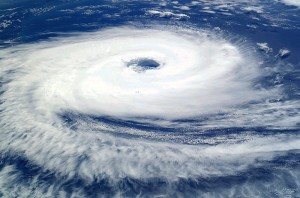 Today, Juliette Kayyem wrote an article in The Boston Globe on the connection between climate change and national security, entitled “After Sandy, environmentalists, military find common cause.” She cited ASP’s report as evidence of the growing concern among national security planners about the risks of climate change.
Today, Juliette Kayyem wrote an article in The Boston Globe on the connection between climate change and national security, entitled “After Sandy, environmentalists, military find common cause.” She cited ASP’s report as evidence of the growing concern among national security planners about the risks of climate change.
Ms. Kayyem declared our current situation as a “war against climate change.” This phrasing seems apt, as climate change threatens us both at home and abroad, and “defeating” this enemy will require marshaling the nation’s resources and mobilizing all sectors – energy, the military, foreign policy, public health, government and private business – to transition towards a low-carbon future.
As the ASP report describes, the consequences of climate change pose daunting challenges for the U.S. military. Fragile states around the world will be affected the worst – weak institutions, poor governance, and an inability to respond to major natural disasters will undermine these states. As natural disasters increase in frequency and severity – drought, severe storms, floods, declining agricultural productivity – these states will be overwhelmed. Each disaster will sap the state of resources, leaving it more vulnerable to subsequent disasters.
The inability of governments in these “hot zones” to respond to climate change will pose risks to global security. While climate changed is unlikely to directly cause conflict, it will act as an accelerant of instability, exacerbating already existing tensions.
However, it isn’t just the developing world that is directly vulnerable to climate change. Policymakers and military planners often overlook the threat from climate change at home. Last week’s Hurricane Sandy demonstrated how vulnerable our country is to a changing climate. There were dozens of casualties, and IHS Global Insight cited of $20 billion worth of direct damages to property, plus an additional $10-$30 billion in lost economic activity.
Severe storms will degrade our nation’s infrastructure, floods will put coastal and riparian communities at risk, drought will put stress on America’s breadbasket, and water scarcity will threaten arid regions in the West.
The result will be an increasing reliance on the military for domestic disaster preparedness and response. The government relied heavily on the Army and National Guard to respond to the storm and deliver food supplies to affected communities. As General Steve Anderson, USA (Ret.) noted at ASP’s launch event last week, time and resources spent on responding to domestic climate crises will stretch the military’s resources and leave it in a weakened position to respond to national security crises abroad.
The American Security Project released a major publication last week, a three-part report called the “Climate Security Report.” You can read the report in its entirety by clicking here. To read the full article from The Boston Globe, click here.

